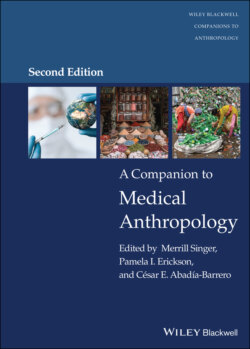Читать книгу A Companion to Medical Anthropology - Группа авторов - Страница 18
Generalists or Specialists?
ОглавлениеAnthropologists who did consider assembling worried whether formally organizing as medical anthropologists would reinforce an “artificial area of study”; in support of this claim some pointed to “the lack of systematic growth and the failure to produce a body of theory” (Scotch 1963). Some feared that formal organizing might “prove detrimental to the development of theory in anthropology” as it would force the fragmentation of the field (Browner 1997, p. 62), a growing concern at that time.
The American Anthropological Association (AAA) was itself then in “organizational disarray,” according to the Committee on Organization, which noted that while anthropologists in general desired to “retain an integrated professional identity” the profession also faced strong “fissiparous tendencies” (Anthropology Newsletter 9[7], as cited in Weidman 1986, p. 116). Some US medical anthropologists felt, accordingly, that simply maintaining a newsletter would be better than assembling as if a faction (Weidman 1986, p. 119). Alan Harwood was one who had, in the late 1960s, tried to put his “finger in the dike… of specialization” (Harwood 2019). Although Harwood eventually came round, taking over the editorship of the group’s renamed newsletter in 1985 when it finally became the journal Medical Anthropology Quarterly, others held out. Arthur Rubel, for instance, “would not be pigeonholed as a medical anthropologist [ever]… for he always saw health/medical phenomena as human behavior to be understood as anthropologists understood other forms of human behavior” (Cancian et al. 2001).
